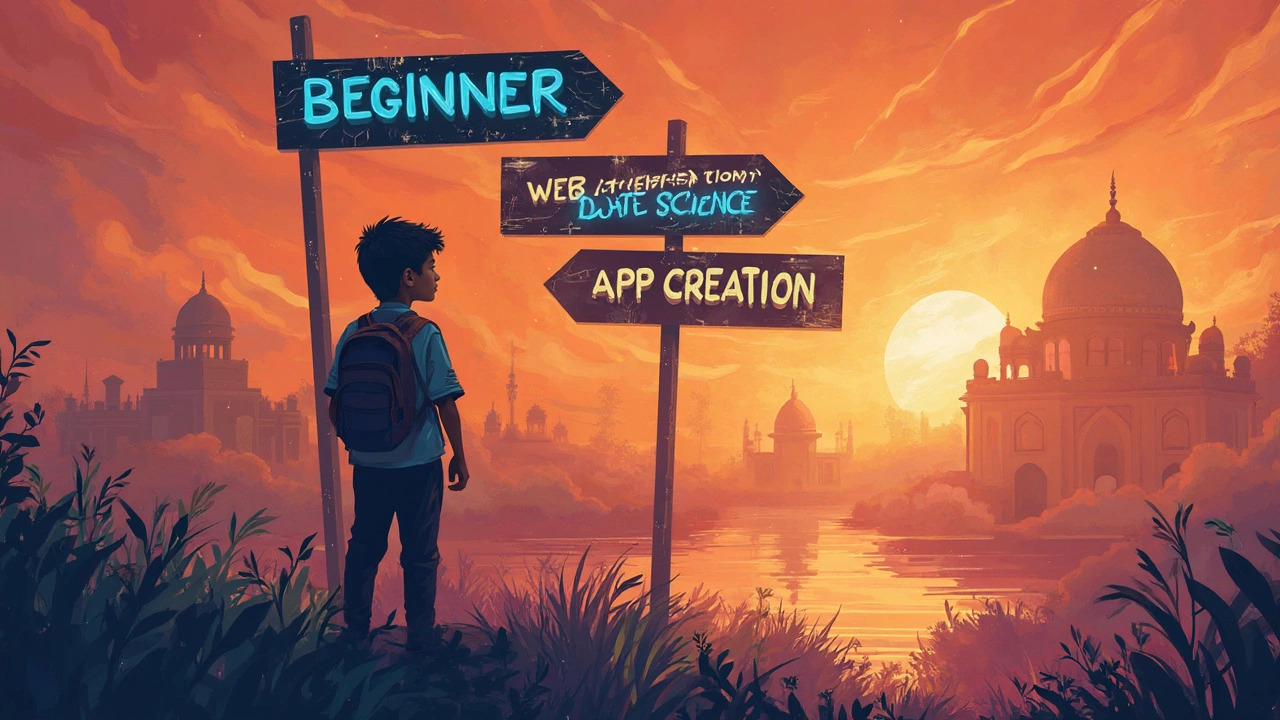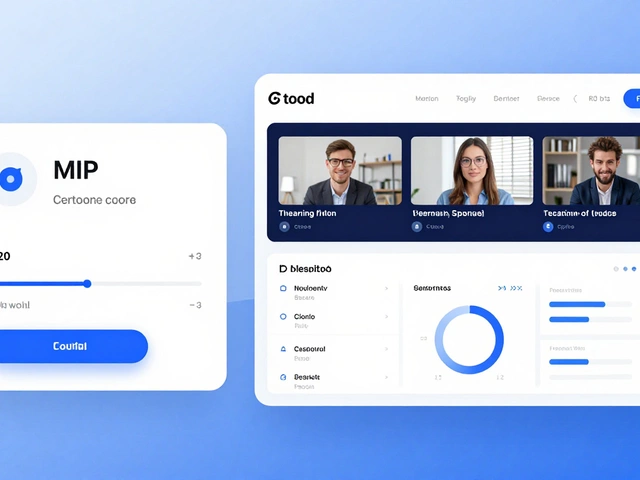If you’ve ever tried picking a coding class, you probably know the feeling—complete overwhelm. Bootcamps, online courses, local workshops, YouTube tutorials... where do you even start? Here’s the thing: the answer depends on how you learn, why you want to code, and what your schedule looks like.
There are hundreds of coding classes out there, but not every one fits every person. Some people just want to get the basics for fun, while others want to land a job in tech. I’ve seen friends drop out of expensive programs because they didn’t realize a two-hour video at home could work better for them. Before you spend a ton of money or time, it’s worth knowing what actually matters in a good class.
Whether you’re brand new or have tried a few lines of code before, the right class can either feel like a waste of time or a total game-changer. I’ll dig into what separates a useful class from a forgettable one, show you options that don’t need a tech degree to join, and share tips to help you stick with it (even on those days when your brain just refuses to understand ‘for loops’).
- How Different Coding Classes Work
- What Makes a Coding Class Stand Out
- Popular Classes for Every Skill Level
- Tips for Getting the Most Out of Any Course
How Different Coding Classes Work
Coding classes aren’t one-size-fits-all. You’ll run into several types, each with their own spin on teaching you to code. Some focus on live interaction, some are self-paced with just videos, and others try to mix it up. To figure out what’s best for you, it helps to know how these classes actually run.
- Online Coding Courses: These are probably the most popular option right now. Platforms like Codecademy, Coursera, and Udemy let you watch videos, read tutorials, and try coding exercises in your browser. You move at your own pace. This freedom is awesome for people juggling a job, school, or kids (I once worked on Python lessons at midnight while Bella snored on the couch).
- Bootcamps: These are for folks who want all-in, heart-racing progress. Bootcamps are shorter, intense programs—think 3 to 6 months—to take you from zero to job-ready. Full-time bootcamps can mean 40 hours a week (it’s legit like a full-time job). The famous ones include General Assembly, Flatiron School, and Le Wagon.
- In-Person Workshops: Some cities have meetups or community college courses so you can learn coding face-to-face. If you love getting help right away or just can’t stand staring at a screen all day, these can be more social and hands-on.
- YouTube and Free Tutorials: YouTube is packed with free coding classes led by all sorts of teachers. The catch? Quality is hit or miss, and it’s easy to end up lost down a rabbit hole. FreeCodeCamp is a favorite for people who want quality structure without paying a dime.
Some classes even give you a mix of everything—project-based videos, quick quizzes, and chats with other coders in forums or Discord groups. Fun fact: According to a 2024 Stack Overflow survey, over 70% of new developers said they learned at least part of their coding from some kind of online class.
| Class Type | Flexibility | Main Perk |
|---|---|---|
| Online Courses | High | Go at your own pace |
| Bootcamps | Low | Fast, career-focused |
| In-Person | Medium | Hands-on help |
| YouTube/Tutorials | High | Free/cheap and easy access |
The real trick is matching the class to your schedule, budget, and how motivated you feel. If you like deadlines, a bootcamp keeps you on track. If you work odd hours, online coding courses won’t judge if you code in pajamas. The best fit is the one you’ll actually stick with—otherwise, the fanciest coding classes won’t help much at all.
What Makes a Coding Class Stand Out
Not all coding classes are created equal. Some people come away more confused than before they started, while others land that dream job or launch their own app. What separates the winners from the rest?
First big one: the mix of hands-on work and clear teaching. Classes that include real projects, like building a website or a simple game, stick way better. There's a reason why sites like Codecademy and freeCodeCamp are loaded with exercises and mini-projects. Just reading about code barely helps—actually writing it does.
Structure matters a lot. You want a class that goes step-by-step and doesn't assume you already get the hard stuff. Good classes *break down* tricky ideas into smaller bites, using tons of examples. Did you know, in a survey by Course Report, 83% of successful bootcamp grads said lots of structured practice was the key?
Next, look for instant feedback. It’s way easier to learn if you know where you messed up right away. Online platforms like LeetCode or Udemy provide quizzes or auto-graded projects. Google’s Grasshopper app even shows exactly which line in your code is off, so you’re not stuck staring at a blank screen in frustration.
- Beginner-friendly language: Jargon-free and simple explanations help more people actually get it.
- Active community: A handy forum or Discord group can be a lifesaver when you’re stuck or need a push to keep going.
- Regular updates: Tech moves fast. Make sure the class keeps up—nobody needs to learn a ten-year-old version of JavaScript.
- Clear path forward: The best courses show you what to do next. They’ll have ‘next steps’ like advanced projects, interview prep, or ways to build a portfolio.
Price and time matter too. The most expensive course isn’t always the best. There are free options with quality on par with paid classes. Check out this quick comparison:
| Platform | Cost | Hands-On Projects? | Beginner-Friendly? |
|---|---|---|---|
| Codecademy | Free/Paid | Yes | Yes |
| Coursera | Free/Paid | Yes | Yes |
| EdX | Free/Paid | Some | Mostly |
| Udemy | Paid (Frequent sales) | Yes | Depends on course |
When a coding class checks these boxes, you’re way more likely to actually keep at it—and see results.

Popular Classes for Every Skill Level
No matter where you’re starting, there’s a coding class that fits. Some classes walk you through the basics like “Hello, World!” and others get you building apps or landing your first gig. Here’s how to find the right type for you, plus some standout names that come up again and again.
For True Beginners: Don’t worry if you’ve never touched code before. Websites like Codecademy and FreeCodeCamp hold your hand from day one. Codecademy’s free intro lessons convince lots of people coding isn’t as scary as they thought. FreeCodeCamp is totally free and even lets you build real projects for your portfolio. Plus, Khan Academy is great if you like interactive lessons and instant feedback.
- Codecademy: Known for its hands-on, step-by-step guidance—choose languages like Python, HTML, or JavaScript.
- FreeCodeCamp: Project-based learning, all free, and great if you want something flexible.
- Khan Academy: Their computer programming track is short and sweet, fitting for younger learners or people who like a gentle pace.
Intermediate Level: By now, you might want to dive into data, start web apps, or understand how the tech behind your favorite sites works. Udemy has solid, affordable courses (watch for sales—nobody pays full price). Treehouse is another big name, offering learning “tracks” where each course builds on the last, like a gym routine for your brain. EdX—created by folks at Harvard and MIT—lets you sample real university courses free or pay for a verified badge.
- Udemy: Get practical coding projects, plus lessons on hot topics like React or Python for data science.
- Treehouse: Focuses on structured tracks—start at web basics, finish with making your own site.
- EdX: Challenging material, good for motivated self-learners who want a college-style experience.
Ready for Advanced Challenges? You’re likely working toward a job or specialized projects. Coursera partners with universities and big-name companies for more in-depth tracks, like Google’s IT Automation with Python. Coding bootcamps like General Assembly and Flatiron School run intensive programs—most are pricey, but you work full-time, get mentorship, and often finish with career guidance.
- Coursera: High-quality courses with certificates, employer recognition, and specializations like AI or app development.
- General Assembly: Full-time or part-time bootcamps with career support. Focuses on employable skills.
- Flatiron School: Known for software engineering and data science. Some grads land $70K+ jobs within months, according to Flatiron’s own 2024 job report.
Here’s a quick look at what some of these popular platforms offer for coding classes:
| Platform | Free Option? | Skill Level | Notable Perk |
|---|---|---|---|
| Codecademy | Yes | Beginner–Intermediate | Lots of languages in one place |
| FreeCodeCamp | Yes | Beginner–Intermediate | Completely free, project-based |
| Udemy | Limited | All levels | Super affordable on sale |
| Treehouse | Trial | Beginner–Intermediate | Structured learning “tracks” |
| Coursera | Audit courses | All levels | University partnerships |
| General Assembly | No | Intermediate–Advanced | Career-focused bootcamp |
You don’t need to sign your life away to one platform—mix and match based on what you actually want to make, and don’t be afraid to ditch a class if it isn’t clicking. That’s the beauty of these online coding courses: you stay in control of your learning.
Tips for Getting the Most Out of Any Course
You’ve found your coding class and signed up. Great! Here’s how you can actually make it stick and come out stronger on the other side—without giving up when it gets tricky.
- Set one clear goal before you start. Decide if you want to build a website, automate work tasks, or just understand how games are built. A specific goal will keep your motivation alive, according to Codecademy’s learning team.
- Practice every day, even if it’s just 20 minutes. Short, regular sessions make everything stick so much better than occasional marathons. The MIT OpenCourseWare team actually found that spaced practice beats cramming, hands down.
- Code along, don’t just watch. Pause videos and actually type the examples. You’ll make mistakes, but that’s the magic—because fixing stuff is *real* learning.
- Ask for help early. Most people wait too long when stuck. Platforms like freeCodeCamp have huge forums you can use, and fellow students are usually happy to chime in.
- Build stuff you care about. If you’re into sports, try scraping sports scores. If you like music, make a playlist generator. Personal projects keep you curious, and they look great in a portfolio.
If you want to see how effort pays off, check out this simple breakdown from a 2023 Stack Overflow developer survey:
| Study Hours/Week | Percent Who Found Coding Jobs |
|---|---|
| 0-4 | 9% |
| 5-9 | 21% |
| 10+ | 38% |
The more you practice, the more likely you’ll actually land work thanks to your skills.
"Learning to code is hard. Don’t go it alone... Surround yourself with community and share your progress." — Quincy Larson, founder of freeCodeCamp
And seriously—use those forums. I once spent three hours wrestling with a weird bug in JavaScript before Nolan spotted what I’d missed. Sometimes, another pair of eyes (even a friendly local coder or a classmate) can save tons of time and stress.
The bottom line? Getting the most out of online coding courses means showing up, making mistakes, asking for help, and keeping your own interests at the heart of what you build. Simple, but it works.





